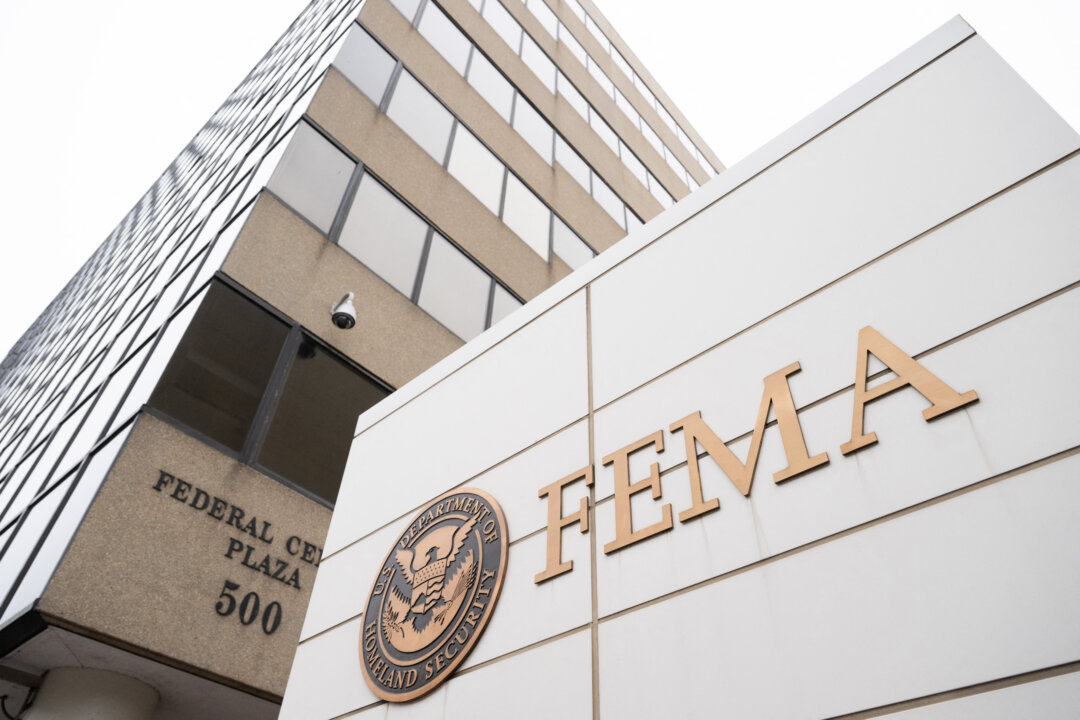President Donald Trump's deal with Paul Weiss was his first big win in his war against Big Law. In court, it's coming back to haunt him. For the law firms choosing to fight Trump's executive orders targeting them, rather than striking deals with the president, the Paul Weiss deal has turned into a potent weapon.
They have cited Trump's quick revocation of the order — just six days after it was initially issued — to argue that they never had any legitimacy in the first place. The order, had it been carried out, would have revoked the security clearances of Paul Weiss lawyers out of "the national interest" and barred them from entering government-owned buildings, potentially including even courthouses and post offices. The argument emerged again in a Washington, DC, federal courtroom on Thursday afternoon as a lawyer representing the firm Susman Godfrey told a federal judge that Trump's turnabout on the Paul Weiss order was evidence that the White House never really believed the law firms posed a national security risk.

"There was no change in circumstances with respect to the trustworthiness of Paul Weiss between the issuing of that executive order and its rescission a few days later," said Donald B. Verrilli, Jr., a lawyer at Munger Tolles representing Susman Godfrey.
"And I think in some ways that tells you all you need to know about whether there's anything legitimate about the suspension." After Paul Weiss agreed to a deal with Trump , in March, its chairman, Brad Karp, told lawyers at the firm that the agreement resolved an "existential crisis" that "could easily have destroyed our firm." The decision divided the legal profession .
Critics said that by choosing to reach an agreement with Trump instead of fight in court — as Perkins Coie had at the time — Paul Weiss empowered Trump to go after more Big Law firms. Eight more Big Law firms made deals with Trump, averting altogether possible executive orders targeting them, and pledging a total of nearly $1 billion in pro bono hours toward Trump's political priorities. For the four law firms fighting executive orders — Perkins Coie, Jenner & Block, WilmerHale, and Susman Godfrey — the Paul Weiss deal had the opposite effect.
It was a clear indication, they have all argued, that the legal justifications for Trump's orders were baloney. Under legal precedents, government agencies are required to conduct an "individualized review" to issue and revoke security clearances, judges have ruled in the cases. Reversing the Paul Weiss order in under a week was clearly too short a time to individually weigh whether each person working at the firm posed an actual national security threat, the four law firms have each argued.
Thursday's court hearing, overseen by US District Judge Loren AliKhan, was over whether the judge should permanently block the order targeting Susman Godfrey, a law firm that represents The New York Times in a lawsuit against OpenAI and Microsoft, and has represented Dominion Voting Systems in its lawsuit against Fox News. Richard Lawson — who has been left as the sole Justice Department lawyer defending the government in these cases — said in the hearing that the executive branch has "inherent discretion on security clearances." He has also argued that because each of Trump's executive orders says security clearances should be reviewed "consistent with applicable law," they could not possibly be illegal .
The four judges, overseeing the lawsuits, including AliKhan, have not been persuaded. Each swiftly issued a temporary restraining order blocking the implementation of the executive orders. On Friday, US District Judge Beryl Howell issued the first order permanently blocking one of the executive orders against Perkins Coie .
She wrote in her 102-page opinion that Trump's actions and public statements indicated his executive orders had nothing to do with national security, but were instead motivated by his dislike of specific people working at particular law firms and because he wanted "big numbers" in pro bono pledges from each firm. "None of these agreed-upon policy or practice changes appear to explain or address how any national security concerns sufficient to warrant the Paul, Weiss EO could have changed so rapidly," Howell wrote of the announced deal between Trump and Paul Weiss. "The speed of the reversal and the rationale provided in the Paul, Weiss Revocation Order, which focused only on agreements to advance policy initiatives of the Trump Administration, further support the conclusion that national security considerations are not a plausible explanation.
" Howell also addressed the circumstances of Trump's executive order targeting Susman Godfrey. After signing the order, Trump announced, "We're just starting the process with this one." It was an indication, Howell wrote, that Trump may view the orders as leverage for a negotiation rather than trying to legitimately address national security issues.
"Whether President Trump's focus on 'the process' refers to enforcement of the Susman EO or that this Order was the opening gambit — akin to the Paul, Weiss EO followed by the Paul, Weiss Revocation Order — for deal negotiations, is unclear," Howell wrote. On Thursday, AliKhan, asked Lawson if he wanted to share a view on how Howell's order might affect the Susman Godfrey case. Lawson stumbled through a response.
"No, I don't. There's nothing in there that, I mean, obviously we have a big issue with the finding," Lawson said, laughing. "But I don't think there's anything urgent I need to bring to the court's attention.
" Read the original article on Business Insider.
















